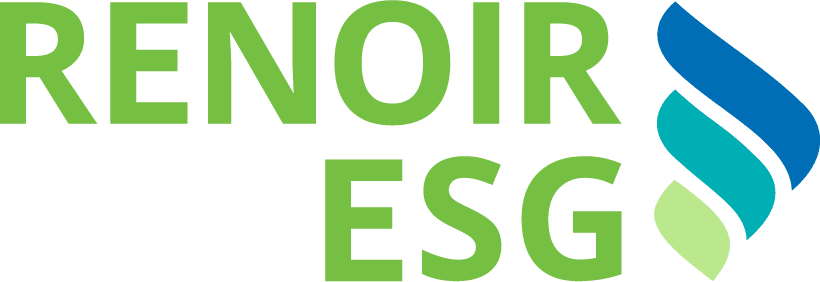At a Glance
- The International Sustainability Standards Board (ISSB) has launched two new reporting standards that provides decision-useful information about companies’ sustainability-related risks and opportunities to investors and other capital market participants.
- The ISSB also announced a set of transitional reliefs for the first year of reporting, which means that companies will not be required to disclose certain information.
- What should organisations do to prepare for the adoption of the ISSB standards?
The International Sustainability Standards Board (ISSB) has launched two new reporting standards. The standards are designed to help investors and other capital market participants by providing them with decision-useful information about companies’ sustainability-related risks and opportunities.
What prompted the launch?
There was a lack of agreement on what sustainability disclosures were appropriate and a lack of high-quality data on which companies could base their reports, creating challenges for both issuers and investors.
The ISSB standards therefore moved away from the current system of scattered, voluntary standards towards a single set of global sustainability reporting standards.
Established by the International Financial Reporting Standards (IFRS), the ISSB has four main objectives:
- To meet the information needs of investors.
- To develop standards for a global baseline of sustainability disclosures.
- To enable companies to provide comprehensive sustainability information to global capital markets.
- To ensure compatibility with region-specific disclosures and those intended for a wider range of stakeholders.
The ISSB says it has the support of a wide range of global stakeholders. including the G7, the G20, the International Organization of Securities Commissions (IOSCO), as well as Finance Ministers and Central Bank Governors from more than 40 jurisdictions.
What is the current status?
In June 2023, the ISSB introduced two new reporting standards:
- IFRS S1: This standard outlines the general requirements for the disclosure of sustainability-related financial information.
- IFRS S2: This standard focuses specifically on climate-related disclosures.
These standards are effective for annual reports from 1 January 2024, with companies publishing their first sustainability reports in 2025.
In response to investor demand for climate-related disclosures, the ISSB also announced a set of transitional reliefs for the first year of reporting. This means that companies will not be required to:
- Disclose Scope 3 Greenhouse Gas Emissions (GHG).
- Disclose sustainability risks and opportunities beyond climate-related issues.
- Publish sustainability reports at the same time as financial statements.
- Provide comparative data for previous years.
- Use the GHG Protocol to measure emissions if they have an established alternative method.

Ai in Action: Impact of Ai-driven sustainability practices across industries

Embedding circular economy strategy into corporate ESG transformation
Ready for a change in your organisation?
Key features you need to know
Focus on single materiality
A key feature of the ISSB standards is that they focus on single materiality, or requiring companies to disclose information about sustainability-related risks and opportunities that could affect their business. This differs from the double materiality approach which also focuses on a company’s impact on the environment and society.
Companies are expected to report on sustainability-related risks and opportunities in four key areas: Governance, Metrics and Targets, Strategy, and Risk Management. This is in line with the Task Force on Climate-Related Financial Disclosures (TCFD) and emphasises how a company uses these aspects to manage sustainability-related risks and opportunities.
Interoperability with other frameworks
The ISSB aims to be interoperable with other sustainability reporting standards that require the reporting of additional information for the benefit of a wider range of stakeholders beyond investors. This includes the Global Reporting Initiative (GRI), with which the ISSB has a Memorandum of Understanding (MoU), to explore ways to collaborate and combine efforts. The ISSB is also working with the European Financial Reporting Advisory Group (EFRAG) which is developing the European Sustainability Reporting Standards (ESRSs).
Global acceptance of ISSB standards
The International Organization of Securities Commissions (IOSCO), which regulates more than 95% of the world’s securities market in more than 130 jurisdictions, plays an important role in the potential widespread adoption of ISSB standards.
According to IOSCO, they will quickly assess the standards against established criteria once they are published. Compatibility with existing global sustainability reporting standards will be a key factor in their decision. In addition, IOSCO will prioritise the applicability of the standards to companies of all sizes.
The collaboration between IOSCO and the ISSB to develop a comprehensive capacity-building programme suggests an endorsement is highly likely. Ultimately, it will be up to individual jurisdictions to determine the exact implementation timelines and whether these standards will become mandatory.
What you can do
The big question is – what should organisations do to prepare for the adoption of the ISSB standards?
- Apply the necessary internal processes to enable simultaneous publication of sustainability reports and audited financial statements
- Review the proposed ISSB standards and supporting materials
- Start implementing the SASB Standards & TCFD recommendations
If you are not sure how or where to start, RenoirESG’s multidisciplinary team of experts with diverse professional backgrounds can help. We have experience of working with companies around the world that have already started their ESG reporting journey to understand how the ISSB standards will impact their existing reporting process and advise on the adjustments they need to make. For companies just starting out on their ESG reporting journey, we can provide support throughout the process.
Are you finding it increasingly difficult to navigate the demanding and rapidly changing ESG landscape?














